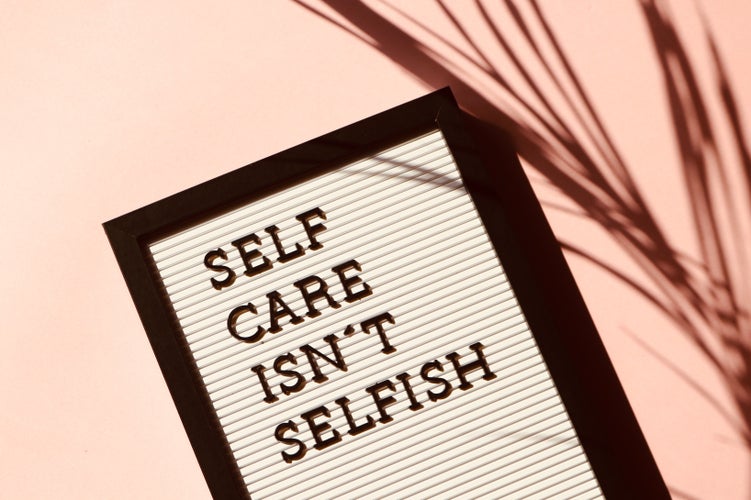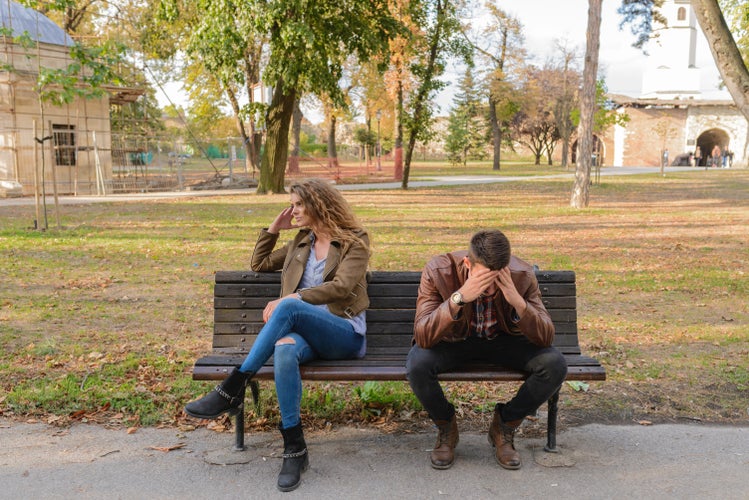Saying “no” can be challenging, especially as managing school, work, and life becomes challenging. As the seasons change and the weather gets colder, we’re reminded of how important taking care of one’s mental health can be as the year comes to a close. It can be complicated for young people to say “no” when we’ve always been conditioned to do as possible, leaving our mental health to fall to the wayside as we seek to make others happy at the expense of our well-being. As someone who has always had a hard time saying “no” to people/things and has been working throughout college to work on my ideas of self-care and self-confidence, I’m here to work with you and give you some advice as November begins 2021 wraps up. Let yourself confidently say “no” to the toxic and damaging things in your life this month!
1. Say no to self-doubt
“Self-doubt” (noun): refers to a lack of confidence in oneself and one’s abilities. When you’re feeling less-than confident and doubting your capabilities, it can affect how you go about the things you do in your everyday life. It’s easier said than done to “say no to self-doubt,” but I’m hoping that you understand what I mean when I say “say no to self-doubt.” Often, we are more than capable of doing things and underestimate our skills and talents—my advice: check in with yourself from time to time. If you hear yourself belittling your skills and abilities, then remember to speak on your strengths!
2. Say no to unnecessary guilt
What do I mean by “unnecessary guilt”? Well, it’s that feeling that creeps up on you when you least expect it or need it. It’s that nagging, bullying voice that confuses you into thinking that you are undeserving of self-care or that self-care is selfish. It’s that feeling that you can’t take a break because you haven’t done as much work as you should have done or as much work as you would have liked to that day. Unnecessary guilt is any sense of guilt that is rooted in both anxiety and low self-esteem. Remember to be kinder to yourself and let yourself be human! Experiencing burnout is common, and needing to rest and recharge is perfectly fine. You’re doing your best, whether you know it or not.
3. Say no to “FOMO”
“FOMO,” or “fear of missing out,” refers to the anxiety that comes from the belief that others might be having fun while you’re not present. With FOMO, you feel you’re missing out on something popular that other people are partaking in, a new experience, or a memorable event. And while taking risks can be suitable for opening yourself up to new experiences and meeting new people, going out of your comfort zone shouldn’t mean putting yourself in harm’s way. You also shouldn’t feel obligated to do things just because everyone else is doing it. This is especially applicable to the pandemic. Remember: even though we’re still in a pandemic, that doesn’t mean you can’t go out and enjoy things! Just enjoy doing something that you’re comfortable with but may have just a little (healthy!) risk involved.
4. Say no to the breaking of personal boundaries
This point is challenging for my fellow people-pleasers and anyone else who wants others to like them. Sometimes it can be hard to say “no” to people we trust or would like to trust, especially when we are in a stage of relational development. You want to open yourself up to them, and at the same time, often opening yourself up to people means they can take those opportunities to breach your boundaries. If someone is breaking the limits that you’ve set for yourself, then let them know! Communicate your feelings and be firm about them. Additionally, if you have a hard time setting boundaries for yourself, it may help to take things one step at a time. Work up the courage slowly, and one day, you might get the confidence to call someone out on their breaching of your boundaries right on the spot.

5. Say no to saying “yes” all the time
And finally, don’t feel obligated to say “yes” to everything! While it’s nice to want to do things for people or fill up your plate so that you stay busy, it’s not healthy to overload yourself. Overloading your plate might lead to increased levels of stress and anxiety, and you might even emotionally lash out at people closest to you. Like the previous point where I discussed boundaries when it comes to saying “yes” to everything, it helps to take small steps here and there. It can be challenging to say “no” to people when you’ve always had this reputation of saying “yes” and being able to do things for others. Still, it’s not entirely selfish to want to set some boundaries for yourself or to want to put fewer things on your plate so you can enjoy your own time.
So I’m not a licensed therapist or psychologist, which means I cannot tell you what to do with your life exactly. However, if you feel like you need someone to talk to about your mental health or issues with your life, seeking professional help is always a good idea. And if that isn’t available, talking it out with loved ones, seeking the guidance of a university student organization dedicated to mental health, or simply checking in with yourself every so often helps a little bit. Overall, I hope that as November starts to take off and the season becomes colder, you remember not to let yourself become cold and that you don’t numb yourself to some mindless robot that can’t say no to things. It can be difficult, but I challenge you (and I even challenge myself!), to try and say “no” more often this No-vember to things/people in my life that may bring me negativity!







